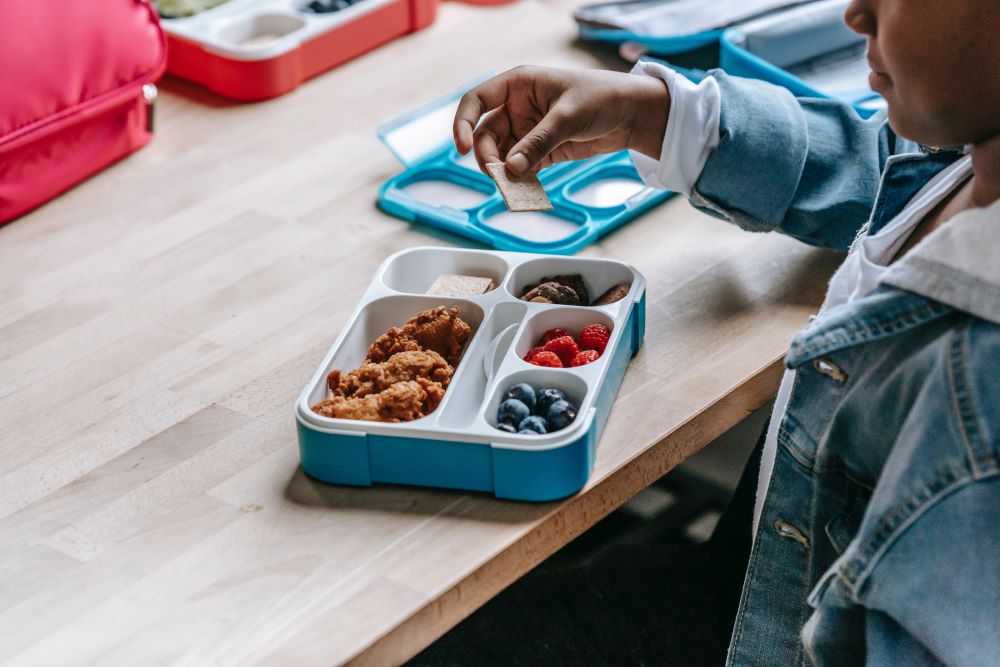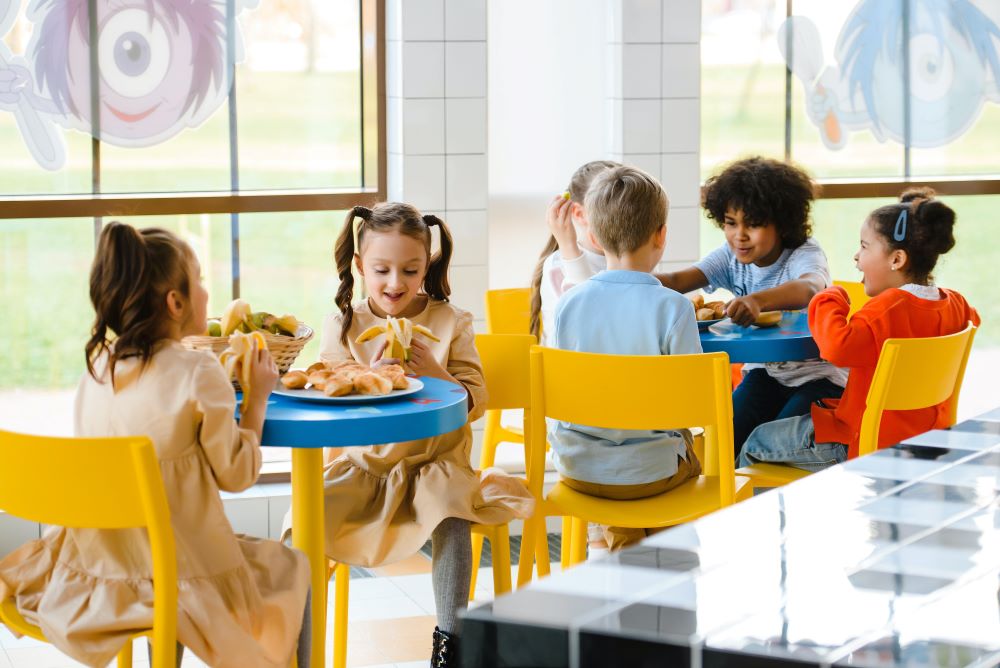Youth Empowered in the Struggle is working with Milwaukee Public Schools to promote student mental health through nutrient-dense meals.
Since his kindergarten days, William Pickard has been dealing with hunger at school. Now a junior at Hamilton High School in Milwaukee, Pickard is collaborating with school district leaders to enhance the nutritional quality of school cafeterias. His motivation stems from personal experience, stating, “I haven’t always had a meal available back at home. There’s a lot of stress not knowing where your next meal comes from.”
Research has shown that school cafeterias play a crucial role in students’ mental health. Food scarcity can lead to stress, anxiety, and eating disorders. Furthermore, the quality of food can impact mental well-being, with ultra-processed foods linked to depression, while certain whole foods can boost serotonin levels, improving mood.
Camila Martin, a nutritionist for children working at UW-Health, emphasized that, in many cases the meal students have at the school is one of the healthiest option available to their children. In Wisconsin, approximately one in nine children faces hunger, according to Feeding America.
Youth Empowered in the Struggle, a student-led group including William Pickard, has been advocating for improved school meals since 2022. The group, working with Milwaukee Public Schools, aims to reduce the reliance on pre-packaged meals and introduce more nutritious options for students.
Each Wisconsin school district faces unique challenges in running their meal programs, including:
- Sourcing fresh ingredients,
- Budget constraints, and
- Ensuring affordability for all students.

Despite these hurdles, districts are finding innovative ways to incorporate from-scratch cooking and fresh ingredients into their recipes.
Bobbie Guyette, the supervisor of school nutrition at the School District of New Richmond, expressed concerns about the prevalence of processed foods in the American food system, both inside and outside schools. She highlighted the nutritional benefits of scratch-cooked meals but acknowledged the challenges, especially related to staffing.
Many school cafeterias lack the equipment or capacity for preparing meals from scratch. Larger school districts may have production kitchens capable of such cooking, but staffing shortages remain a pervasive issue. A nationwide survey indicates that more than 90 percent school districts within the country have actively considered staffing shortages to be a major challenge.
To address this, some districts, like Howard-Suamico School District near Green Bay, are adopting a “speed scratch” approach, combining cooking with pre-made foods. While not entirely from scratch, this method provides a balance between nutritional quality and practicality.
Sustainable Kitchens, an organization founded in 2015, assists schools in creating scratch kitchens using local ingredients. The group focuses on ensuring student acceptance by involving them in taste tests and recipe development. This approach has proven successful, with increased student participation in school meals.
Efforts to connect schools with local farmers and vendors have also gained traction in Wisconsin. The Department of Public Instruction collaborates with the Department of Agriculture to facilitate monthly Marketplace Meetings, allowing districts to communicate their food needs, while local suppliers share available products. A new grant program aims to further support farm-to-school projects with funding for salaries, equipment, and supplies.
Some schools, like those in the Green Bay area, are incorporating hydroponic growing towers from companies like Fork Farms. These towers enable schools to grow fresh produce indoors throughout the year, establishing a direct connection between students and the growing process. The initiative not only reduces reliance on distant sources but also encourages healthier eating habits among students.
Rep. Kristina Shelton advocates for universal free school meals in Wisconsin, similar to initiatives in eight other states. Research supports the positive impact of access to free school meals on student academic performance, attendance, and behavioral incidents. Shelton’s proposed bill, allocating approximately $120 million in funding, seeks to reimburse schools for all provided meals, promoting better nutrition and mental health among students.
Despite some pushback, Shelton emphasizes the importance of consistent, sustainable funding for building a healthier school meal system. She is also working to modify farm-to-school grant incentives, prioritizing districts with a high number of low-income students.
Wisconsin’s efforts to improve school cafeterias reflect a broader promise to enhancing student mental health through nutrition. From advocating for better meals to innovative solutions like hydroponic towers and farm-to-school collaborations, these initiatives aim to ensure that school cafeterias contribute positively to students’ overall well-being.
Sources:
How school cafeterias can shape student mental health, and what Wisconsin is doing about it
How the quality of school lunch affects students’ academic performance


Join the conversation!